A new female composer-centred label finds a winner

The Strad Issue: November 2024
Description: A new female composer-centred label finds a winner
Musicians: Raphaëlle Moreau, Shuichi Okada, Alexandre Pascal (violin) Léa Hennino, Claudine Legras (viola) Héloïse Luzzati, Edgar Moreau, Aurélien Pascal (cello) Lorraine Campet (double bass) Nicolas Baldeyrou (clarinet) Célia Oneto Bensaid, Tanguy de Williencourt (piano) Dutilleux Quartet
Works: Strohl: Grand Fantasy-Quintet; Septet in C minor; Harlequin and Columbine; Piano Quartet; Piano Trios: no.1 in G minor; no.2 in D minor; String Quartet; Solitude; Musiques sur l’eau
Catalogue number: LA BOÎTE À PÉPITES (BAP07-09, 3 CDs)
Born Aimée Marie-Marguerite Mercédès Rita Larousse La Villette, but adopting the surname of the first husband she lost to septicaemia just two years into their marriage, Rita Strohl (1865–1941) is suddenly becoming non-niche. Perhaps her best-known chamber work until recently would have been her Dramatic Sonata ‘Titus and Berenice’ for cello, already superbly recorded by Edgar Moreau with David Kadouch. Now, Moreau is among leading younger-generation French and France-based musicians gathered by La Boîte à Pépites for this carefully compiled second volume of its Strohl compendium – perhaps explaining the omission of ‘Titus and Berenice’.
The youthful line-up feels especially apt when Strohl’s chamber works are early-career ‘laboratory’ ones (songs later became her preferred small-scale medium, complementing various large-force works), and there’s plenty for the musicians to sink their teeth into: sinewy writing full of bold unison octaves; more Mendelssohn-esque, fairyish lucidity; multiple variation movements; a minor-leaning tonality that’s initially conventional, but later embraces chromaticism and the whole-tone scale.
The Grand Fantasy-Quintet (1886) is a compelling combination of quasi grand-opera drama and puckishness, and it’s stirringly handled by Shuichi Okada, Léa Hennino, Héloïse Luzzati and Célia Oneto Bensaid. For cellists, the Romantic Solitude (1897) will be an irresistible discovery, Luzzati voicing it with clean-lined lyricism, strength and poise. Also notable is Harlequin and Columbine for piano, cello and clarinet (once played by Casals), its commedia dell’arte couple lyrically incarnated here by Aurélien Pascal and Nicolas Baldeyrou. Tanguy de Williencourt binds the whole together at the piano – as he does in the two trios featuring exciting, elegant playing from Moreau and his violinist sister Raphaëlle.
Sessions were mostly in the subtly supportive Maison de l’Orchestre national d’Île-de-France, but the String Quartet was set down in the drier acoustic of La Fonderie Studio Sextan, and is a fantastic match for the Dutilleux Quartet’s nimbly non-fussy, multi-shaded playing. A worthwhile addition to the catalogue.
CHARLOTTE GARDNER

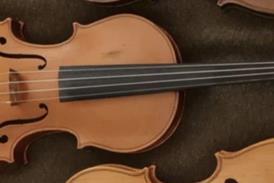
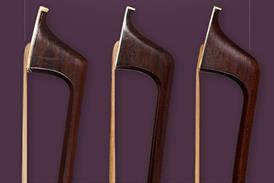

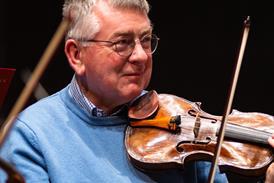
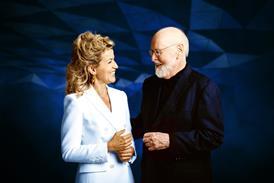
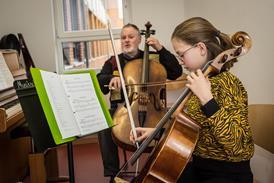
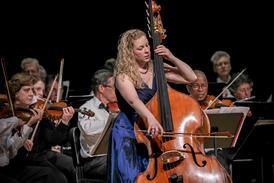

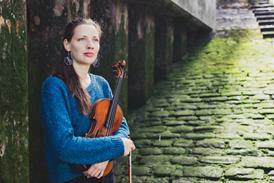
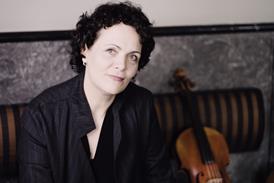
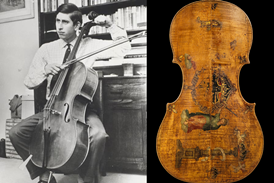
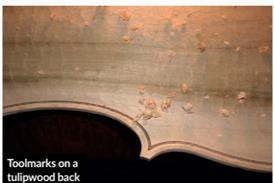
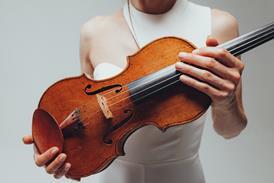
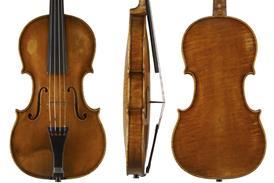




















No comments yet